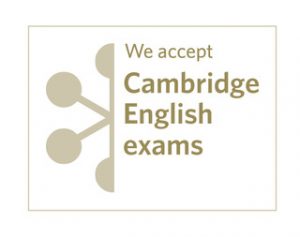If you talk to a man in a language he understands, that goes to his head. If you talk to him in his language, that goes to his heart. – Nelson Mandela
- One objective of the EU’s language policy is that every EU citizen masters two other languages in addition to their mother tongue.
- The EU is 27 members of the EU and there are 24 official languages: German, English, Bulgarian, Croatian, Danish, Spanish, Estonian, Finnish, French, Greek, Hungarian, Irish, Italian, Letton, Lituanien, Maltese, Dutch, Polish, Portuguese, Romanian, Slovak, Slovenian, Swedish and Czech.
- Translation accounts for 1% of the EU budget.
- English remains an official language of the EU (even post-Brexit), it is the official language of Ireland and Malta. It is up to the Council of Ministers to vote unanimously on changes to the EUs language regime.
- The European Day of Languages is the 26th September.
- The longest word we found in Europe is German and 67 letters! Grundstücksverkehrsgenehmigungszuständigkeitsübertragungsverordnung. It is something to do with regulating competences!
- At the UN that are 6 official languages: Arab, Chinese, English, French, Russian, Spanish. English Language Day at the UN is celebrated on 23 April, William Shakespeare’s birthday.
- If babies move to other countries forgetting their birth language, they retain hidden linguistics abilities. A study showed Dutch-speaking adults adopted from S. Korea exceeded expectations at Korean pronunciation when retrained after losing their birth language. Science
- The most spoken language in the world is Chinese. It is estimated that it is spoken by 1.2 billion people of which 1 billion speak Mandarin. That’s 1 in 6 people in the world! (Chinese language.
- Esperanto means “one that hopes” and was created in 1887. It is an international language with easy grammar (no exceptions!). It is not an official language of any country. In 2012 Google added it as it’s 64th translated language. An office in Paris offers courses and certification.
- Numbers vary but there are between 6500 to 7100 languages in the world.
- A recent study published by the Society for Neuroscience showed that bilingual adults have denser grey matter in the inferior parietal cortex (brain tissue that processes information). It is denser in those who learned a second language before the age of five and in those who are most proficient at their second language. The study suggests that being bilingual from an early age significantly alters the brain’s structure.
- More than half of the world’s population– estimates vary from 60-75% speak two languages. (The-amazing-benefits-of-being-bilingual
- The UN estimates that there are 2295 languages in danger of disappearing. Some examples of recently extinct languages are: Akkala Saami (Russian Federation); Aasax (Tanzania) – 1976 ; Ubyh (Turkey) – 1992; Eyak (United States, Alaska) – 2008.
- Ancient Greek and Latin are considered dead languages. Ancient Greek evolved into modern Greek and Latin became Italian, Spanish, French, Romanian and other languages.
- The Emperor Charles Quint whose vast domains spanned nearly 4 million square kilometres said, “I speak Spanish to God, Italian to women, French to men, and German to my dog”.
- There have been various efforts to put a monetary amount on the advantage of being bilingual. We won’t suggest a figure, but whilst bilingualism is not the only ingredient to finding a good job, it can cut out the competition, help in salary negotiations, increase your job market, networks, options, opportunities and personal enrichment!
SmartSteps is a Gold Partner of Cambridge English



